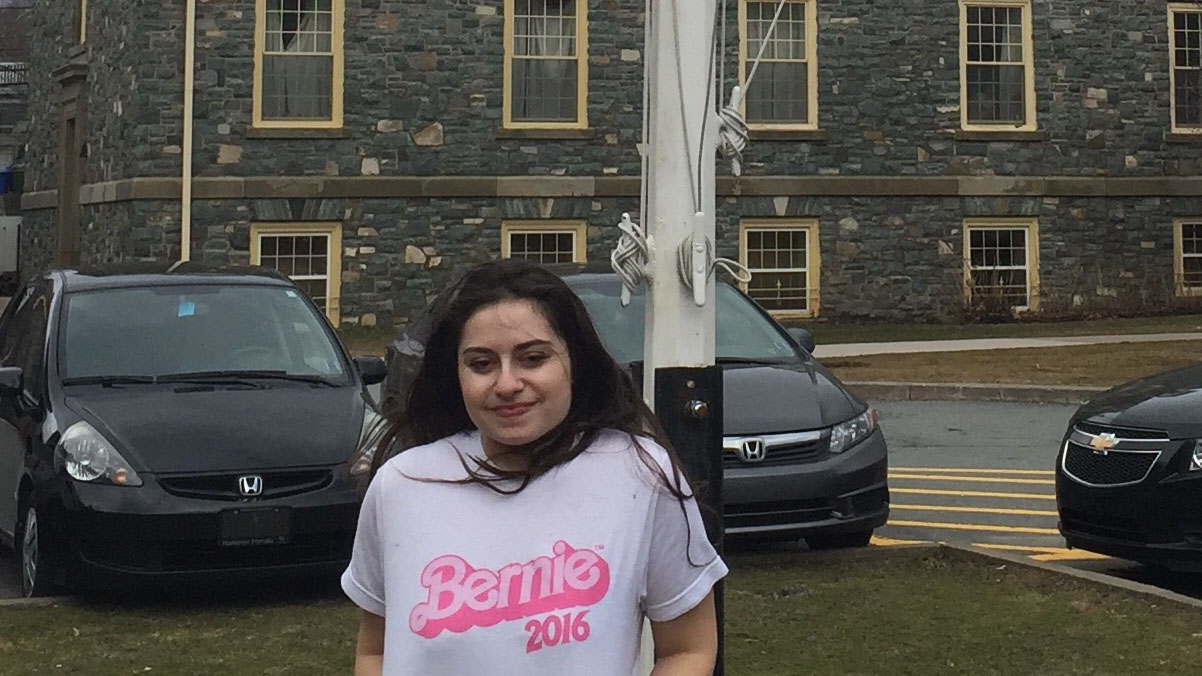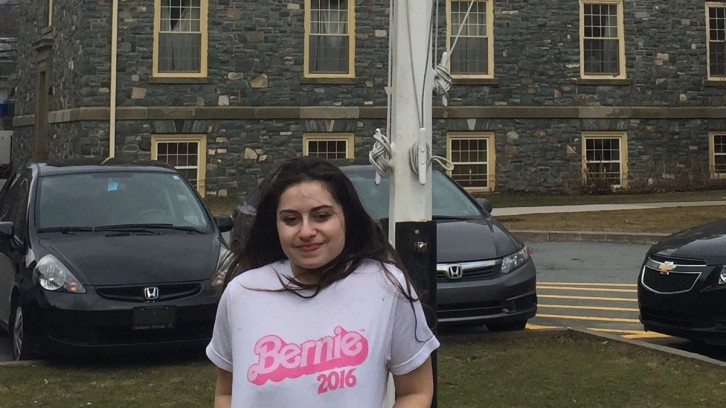Voting abroad
How Americans living abroad can cast a vote

caption
Olivia Canny shows off her shirt in support of Bernie Sanders
caption
Olivia Canny shows off her shirt in support of Bernie Sanders
As the American presidential primaries continue this week, people all over the world are watching to see who will be in the final race for the leadership of the United States.
The estimated 8.7 million Americans that live abroad are still able to cast a vote.
Americans have a variety of ways to vote by absentee ballot as long as they are registered as a voter.
Voting by mail
Olivia Canny, a student from Maine living in Halifax, contacted her state’s Democratic Party and they sent her a ballot via email.
“I registered as a Democrat as soon as I turned 18, so it was easy for them to get me a ballot,” she says. “I just printed it off, filled out my name and address, checked my box off and mailed it out.”
Mailing in an absentee ballot is a way many Americans living abroad can vote, whether they are a Democrat or a Republican.
Voters from every state may request anabsentee ballot from the party they are registered to, or from one of the many organizations that are created to help American expatriates vote from their current home.
How to request your ballot
Abby Boron, who is from Massachusetts but currently lives in Halifax, downloaded her ballot from votefromabroad.org.
Voters living abroad can also request ballots from the Federal Voting Assistance Program, where they can go through the process online.
Boron says that she made the effort to vote because she recognizes the influence that a new American president will have on the world.
“Maybe Bernie Sanders becomes president and a lot of things change, or maybe Donald Trump becomes president and a lot of things change,” she says. “U.S. politics are a huge deal all over the world, and I think being able to vote is cool in that respect.”
It is important for Americans abroad to find out the deadline for their state when mailing in their ballot. Voters must submit their ballot by this deadline. In some states where the primaries are closed, voters must also be registered in a party to vote.
Another option for Democrats
Canny says that she has friends who she encouraged to vote, but because they had to register to a party, chose not to go through the process.
“Some of them were like ‘Oh I don’t know how to do that.” etc. etc, so now they won’t be voting,” she says.
For Democrats like Canny’s friends who have missed their state’s primary because they did not register or request a ballot on time there is still another option.
Democrats Abroad, an organization created to help Americans abroad contribute to U.S. politics, has its own closed primary on March 8.
To vote in this primary voters have to register with Democrats Abroad through votefromabroad.org, request their ballot, and email, fax or mail it to Democrats Abroad.
Giles Hogya, the Canadian chair of Democrats Abroad, says that the process of voting with Democrats abroad is very simple.
“It’s incredibly easy. It’s like one stop-shopping,” says Hogya. “You can join Democrats Abroad, you can vote, you can request your federal ballot online through votefromabroad.org. It’s easy, it’s fast and it’s reliable.”
Democrats Abroad will also have voting centres situated in more than 40 countries during the week of March 1-8 where Americans can register in person and vote the same day. There are 16 centres located throughout Canada. The centre for the Atlantic region is located in Port Maitland, N.S., at Maitland House and will be open on March 1 from 7:00 p.m. to 9:00 p.m.
There is no equivalent option for voters who wish to vote in the Republican primaries.
Hogya says that he encourages Americans abroad to vote because they have a responsibility to their democracy.
“I think it’s very important to vote in both the federal election and the primaries. That’s the basis of democracy. If you don’t vote then you really have no say in what happens to you, you’re not doing what’s expected of you as a citizen.”
